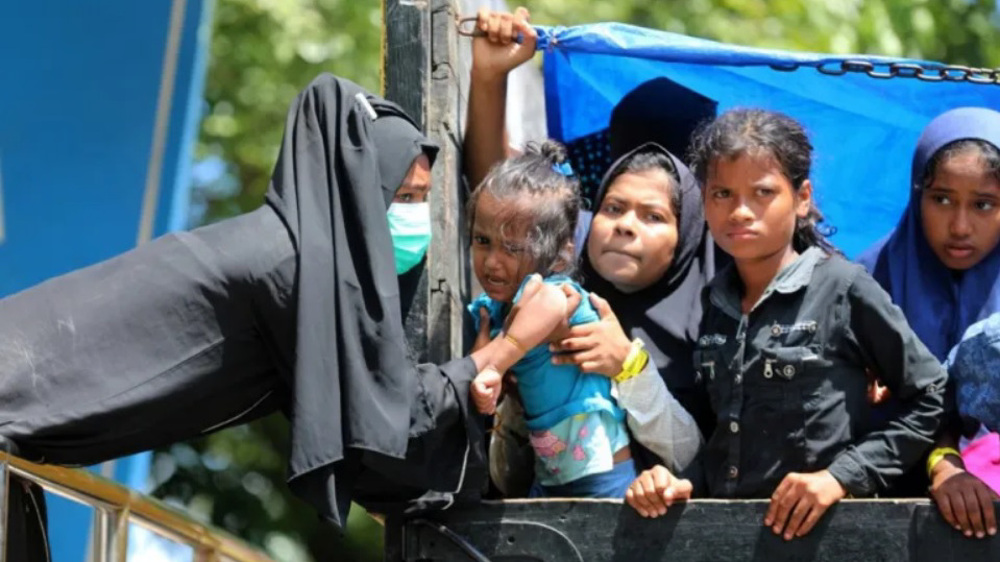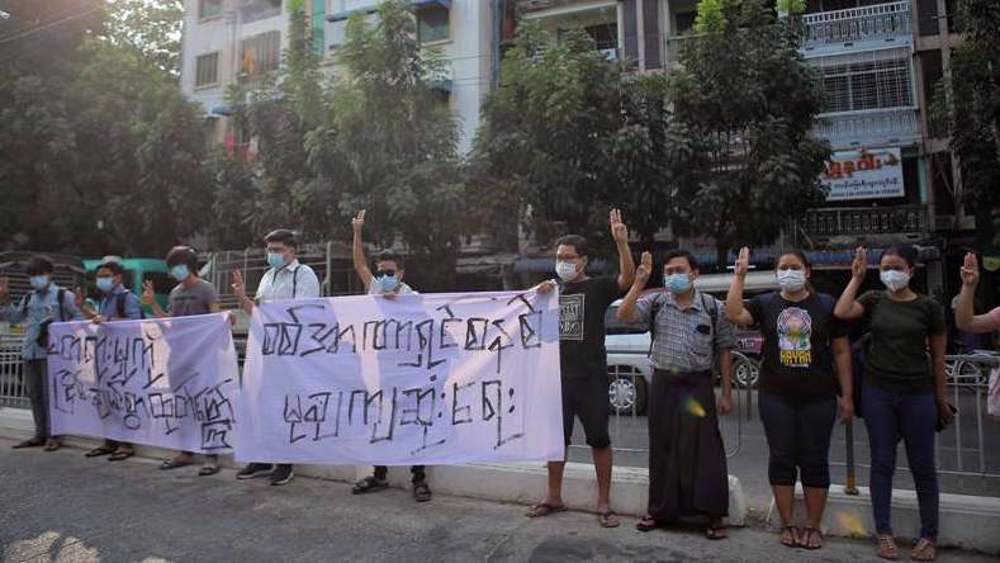Fears of military crackdown as Myanmar police use water cannon against anti-coup protesters
Tensions continue to simmer in Myanmar amid growing opposition to last week’s military coup, as the authorities' patience appears to be wearing thin, with police using water cannon against protesters in the tightly-controlled capital.
The police fired bursts of water cannon as thousands of people gathered on a highway in Naypyidaw on Monday.
At least two protesters were injured, AFP quoted a photographer on the scene as saying.
State broadcaster MRTV warned Monday that opposition to the military takeover was unlawful, signifying a potential harsh security response.
"Action must be taken according to the law with effective steps against offenses which disturb, prevent and destroy the state's stability, public safety and the rule of law," said a statement read by an announcer on the channel.
Protests also took place in the commercial capital Yangon, with saffron-robed monks marching in the vanguard of demonstrations, along with workers and students.
Flashing a three-finger salute that they adopted from anti-government demonstrators in neighboring Thailand, the protesters were chanting "Down with military dictatorship."
They were also carrying signs reading "Release Our Leaders, Respect Our Votes, Reject Military Coup" and "Save democracy."
The military said on February 1 that it had arrested Myanmar’s ousted de facto leader Aung San Suu Kyi and her associates over accusations of voter fraud in favor of her National League for Democracy (NLD) party in November 2020 elections.
The military placed commander-in-chief Min Aung Hlaing in power and pledged to hold fresh elections in a year and hand over power to the winner.
The military takeover of power triggered widespread international condemnation.
The United Nations continued to press for a restoration of democracy, with Thomas Andrews, the United Nations special rapporteur on Myanmar, saying in a tweet on Sunday, "Protesters in Myanmar continue to inspire the world as actions spread throughout the country… Myanmar is rising up to free all who have been detained and reject military dictatorship once and for all. We are with you."
Strike begins
A campaign of civil disobedience has also begun, with doctors, teachers, textile workers, civil servants and railway employees walking off the job in Yangon.
"This is a work day, but we aren't going to work even if our salary will be cut," one protester, 28-year-old garment factory worker, Hnin Thazin, told AFP.
The military has so far refrained from using deadly force like it did during previous widespread protests in 1988 and 2007.
But fears of a bloody crackdown have been raised after a convoy of military trucks was seen passing into Yangon late on Sunday.
Anti-coup rallies were held across much of the country on Monday, including Myanmar’s second-largest city, Mandalay, the southern cities of Dawei and Hpa-an, and Myitkyina, the capital of Kachin state in the far north.
Myanmar was ruled by the military from 1962 until 2011, when Suu Kyi ended the junta rule.
But her international reputation has been tarnished because she defended a military campaign of genocide against the minority Rohingya Muslim community in 2017.
VIDEO | Press TV's news headlines
More Europeans see Trump as 'enemy' than 'friend': Survey
Ukraine war talks begin in UAE as Russia repeats Donbas demand
Iran slams UNHRC session as illegitimate, says no submission to foreign pressure
Six-month-old boy freezes to death in Gaza amid Israel's inhumane blockade
VIDEO | Protestors in South Africa slam US interference in other countries’ affairs
Israel runs smear campaign against Doctors Without Borders: Report
Iran slams EU parliament’s ‘meddlesome, irresponsible’ resolution on terrorist riots














 This makes it easy to access the Press TV website
This makes it easy to access the Press TV website